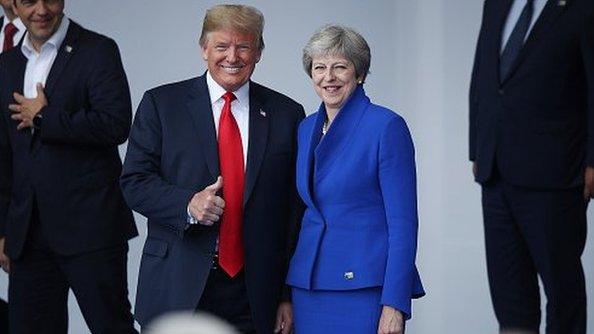Brexit: Trump says May's Brexit plan could hurt UK-US trade deal
- Published
Trump: Brexit agreement "great deal for EU"
Donald Trump has suggested Theresa May's Brexit agreement could threaten a US-UK trade deal.
The US president told reporters the withdrawal agreement "sounds like a great deal for the EU" and meant the UK might not be able to trade with the US.
No 10 insisted it is "very clear" the UK would be able to sign trade deals with countries around the world.
Downing Street added that Mrs May is ready to defend her deal in a TV debate with Labour leader Jeremy Corbyn.
It has been reported the debate could take place on 9 December - two days before the Parliamentary vote on Mrs May's deal.
Speaking to reporters outside the White House, Mr Trump said: "Right now if you look at the deal, [the UK] may not be able to trade with us. And that wouldn't be a good thing. I don't think they meant that."
It would appear Mr Trump was suggesting the agreement could leave Britain unable to negotiate a free-trade agreement with the United States.
Cabinet Office minister David Lidington said Mr Trump's comments "were not unexpected" and negotiations on a trade deal with the US were always going to be "challenging".
"The United States is a tough negotiator," he told BBC Radio 4's Today. "President Trump's always said very plainly 'I put America first'. Well, I'd expect the British prime minister to put British interests first."
The comments came after Mrs May fought off criticism of her Brexit deal from MPs on all sides of the Commons on Monday - insisting the agreement would allow the UK to regain control of laws, money and borders.
In other developments:
Research published by the London School of Economics, King's College and the Institute for Fiscal Studies suggests the PM's Brexit deal could leave the economy as much as 5.5% smaller in 10 years time than it would be if the UK stayed in the EU
Judges at the European Court of Justice are to examine whether the UK can call off the process of leaving the EU without permission from member states, following a challenge by a group of Scottish politicians
International Trade Secretary Liam Fox is visiting Israel to boost economic ties ahead of Brexit

Analysis
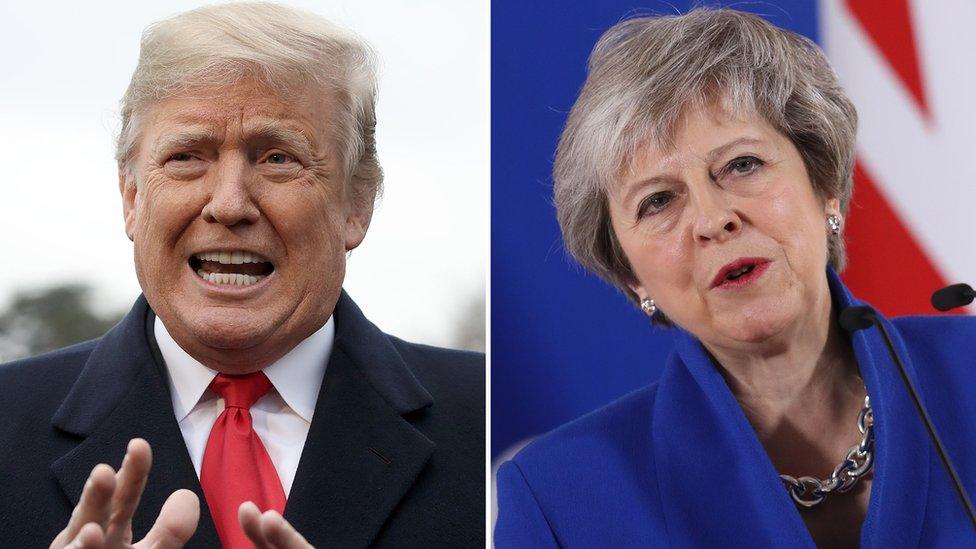
By BBC North America editor Jon Sopel
Theresa May took a kicking in the House of Commons and then her closest ally, in the shape of Donald Trump, puts on his size 12 hobnail boots and joins in.
When Donald Trump fired a broadside at Theresa May's Brexit deal there was nothing accidental or off the cuff about it.
Senior members of his administration maintain close contacts with prominent eurosceptics in the Conservative party.
But when the president says the agreement could jeopardise trade with the UK, it's hard to see what he means. During the transition period, business with the US would presumably carry on in exactly the same way as it does now.
Yet all the time that Britain is in some way yoked to EU rules then there are limits to what can be negotiated in terms of a free trade deal - all points that have been made by those who campaigned for a more decisive Brexit.
This intervention, coming post deal and pre-Commons vote, can only be interpreted in one way - the president is siding with the prime minister's critics.

Labour, the Lib Dems, the SNP, the DUP and many Tory MPs have said they will vote against the Brexit deal.
Sir Michel Fallon has launched a scathing attack on Mrs May's Brexit deal, labelling it "doomed".
The senior Conservative and long-standing party loyalist echoed Mr Corbyn's words when he described the deal as "the worst of all worlds".
Asked if the prime minister was now also doomed, he told BBC Radio 4's Today programme: "That's up to my colleagues."
Allow X content?
This article contains content provided by X. We ask for your permission before anything is loaded, as they may be using cookies and other technologies. You may want to read X’s cookie policy, external and privacy policy, external before accepting. To view this content choose ‘accept and continue’.
Theresa May on Northern Ireland backstop: "This is an insurance policy no-one wants to use."
As part of her two-week bid to convince MPs and the British public to back her deal, Mrs May will tell politicians and employers in Wales on Tuesday that they will have more power after Brexit, with more than 150 areas of policy passing to devolved parliaments and assemblies.
She will also highlight the potential benefits to farmers of leaving the EU's Common Agricultural Policy.
Then in Northern Ireland, she will tell representatives of the five main political parties her deal will allow employers to "trade freely across the border with Ireland and have unfettered access to the rest of the United Kingdom's market".
Northern Ireland has featured heavily in discussions about Brexit because both the UK and the EU want to avoid a physical border - with guard posts and checks - between it and the Republic of Ireland. The agreement includes a "backstop" - a fall-back position - that would mean Northern Ireland would still follow some EU rules on things such as food products if a long-term trade deal is not agreed.
The Democratic Unionist Party, which props up Mrs May's government, has accused the PM of breaking her promise that Northern Ireland would never be treated any differently from the rest of the UK - but the PM has said the backstop was an "insurance policy no-one wants to use".
Jeremy Corbyn: "Even the prime minister's own cabinet can't bring themselves to sell this deal."
The UK is due to leave the EU on 29 March 2019, under the terms of legislation already passed by Parliament.
Labour, the Lib Dems, the SNP, the DUP and many Tory MPs have said they will vote against the Brexit deal.
Lord Kerslake, the former head of the civil service, said government officials were probably working on a "plan B" in case the deal was rejected but there would be "no whisper of it" publicly until the outcome of the Commons vote.
He told the BBC that while the option of seeking changes to the withdrawal agreement remained on the table, if the defeat was extremely heavy then more radical alternatives, such as extending the talks, would have to be considered.
"If Parliament rejects the deal by a significant majority and no deal is not now unacceptable there is a responsibility on the government to look seriously at options they have previously ruled out," he told Radio 4's Today.
- Published26 November 2018
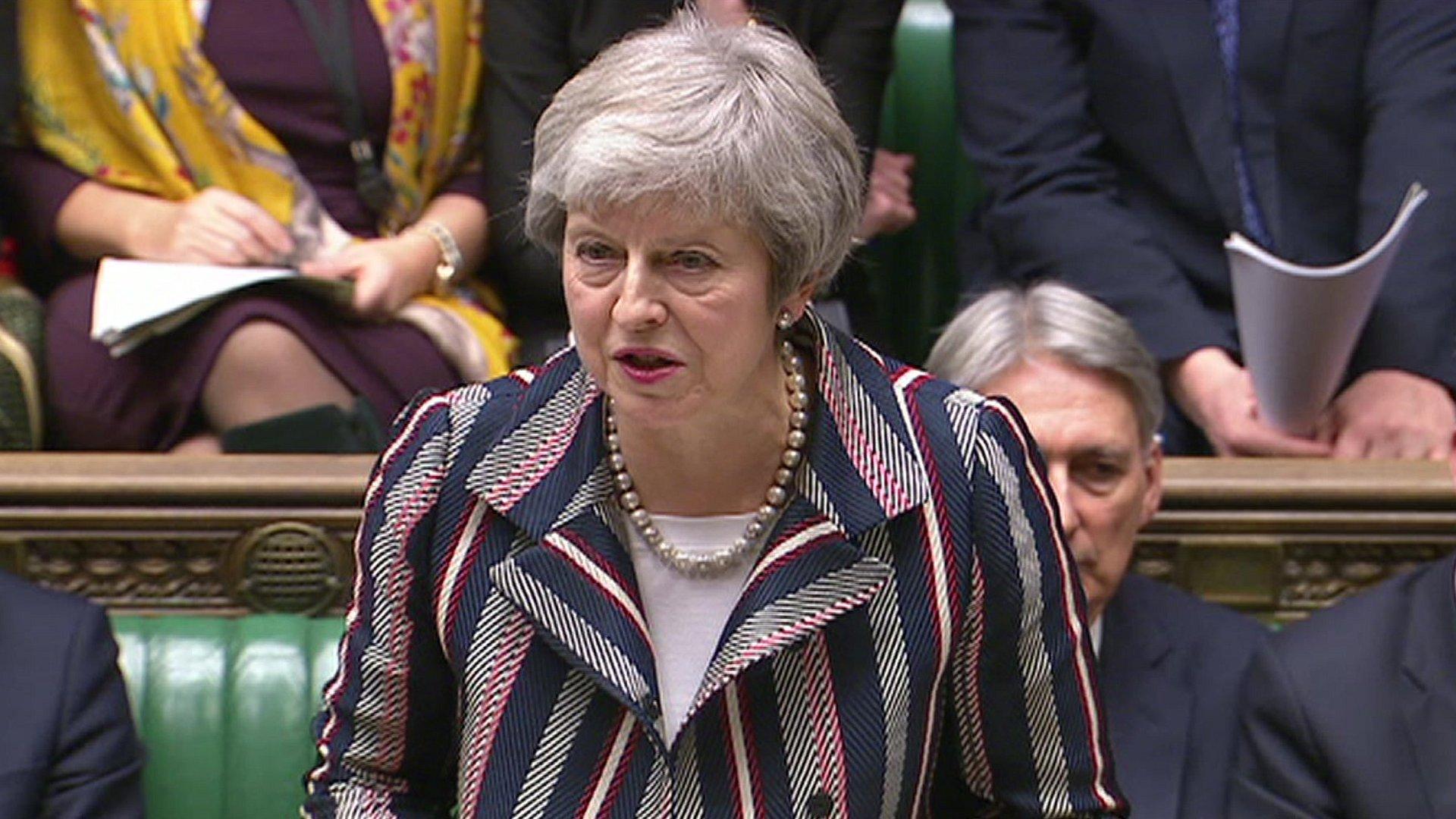
- Published26 November 2018
- Published25 July 2017
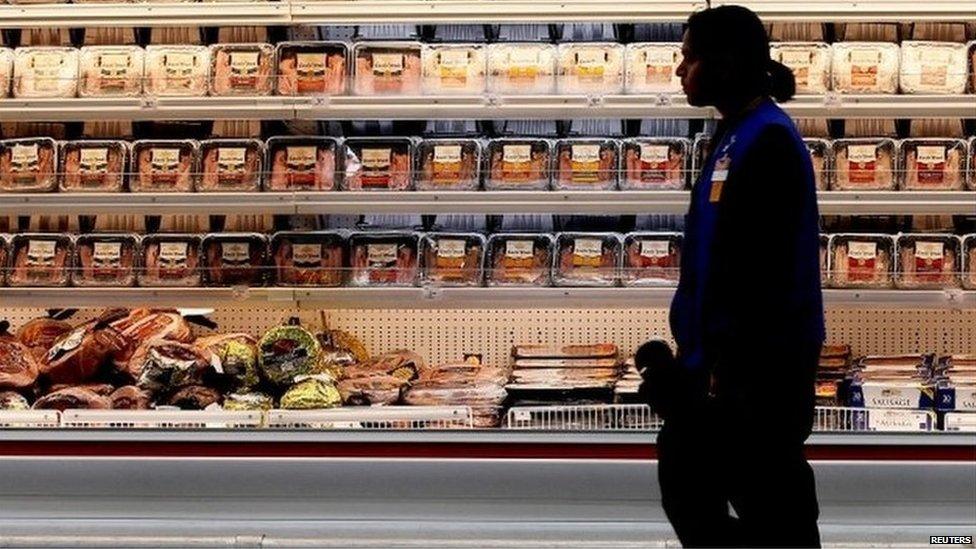
- Published13 July 2018
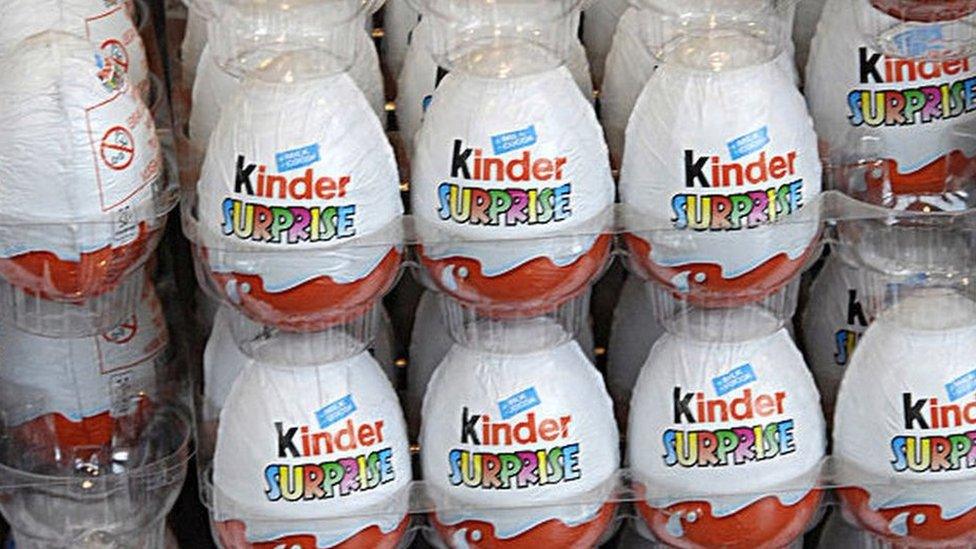
- Published12 July 2018
